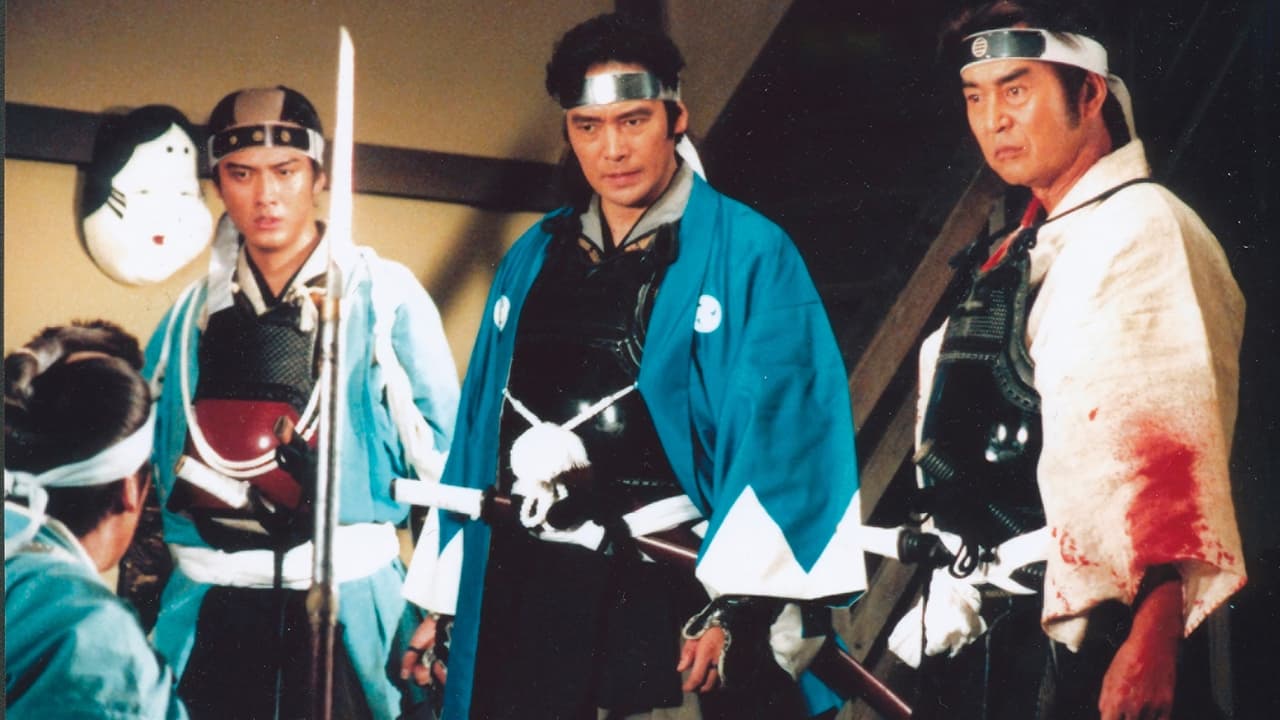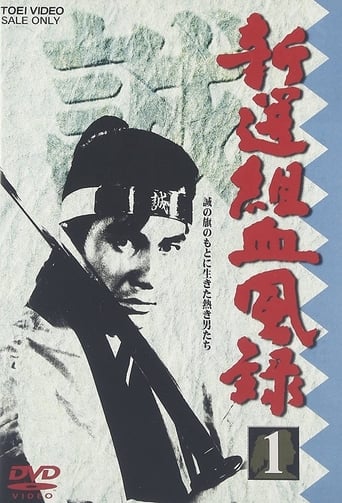Bloody Journal of the Shinsengumi (1998)
Bloody Journal of the Shinsengumi
1998
The arrival of Matthew Perry's Black Ships rudely awakened Japan from 300 years of isolation from the world. Men set their eyes beyond Japan and began to demand change in society. Old clashed with the new, and thus began an age of turmoil. Amidst this confusion, one group remained true to the old ways and risked their lives to preserve the traditional shogunate system. Led by their charismatic captain, Kondo Isami, the Shinsengumi upheld the code of honor of the samurai. Tales abound of the feats of men like Kondo, Hijikata Toshizo and Okita Soshi. In general, the passion and glory of these men who lived during these turbulent times in Japanese history are given exploration.
Seasons & Episode

A two-part special. Okiyo and Otaka meet Kondo Isamu, little realizing that he would play a big part in their lives in the coming years. The Shinsengumi grows to 40 members and their reputation grows.

The Shinsengumi is split into two factions. One is led by Kondo Isamu and includes Hijikata and other swordsmen from Edo, the other by Arasawa, a former Mito clansman. Together with the Aizu Clan, they share the duty of protecting Kyoto city.

As Kotsuru and Shinakai's love grows, Kondo worries about their relationship. Inoue Genzaburo is humiliated by a clansmen from Higo and they decide have a duel. Kondo, realizing their danger, rushes to intervene.

A new member joins the Shinsengumi. Kano Sozaburo is extremely handsome and skilled in the martial arts. But his popularity creates jealousy among some members. Meanwhile, Yuzawa is slain by an unknown assailant. However, Kondo determines that Tashiro is Yuzawa's killer and orders Kano to take revenge.

Ito Koshitaro plans an invasion on the Shinsengumi headquarters by taking advantage of a Shinsengumi member. Nagasaka has an encounter with Mito clansmen. Fearing reprisal, Kondo secretly orders Nagasaka out of the city.

Hijikata and Yamanami are at odds over the mission of the Shinsengumi. Ito Koshitaro becomes the catalyst that causes the members to break up into factions. And Yamanami bids a final farewell to his lover Akisato.

Fukamachi Shinsaku from Choshu infiltrates the Shinsengumi. Three members are later executed as spies from Choshu and orders are given to find one remaining spy. Shinsaku, fearing for his own life, flees. But during his escape, he meets up with Matsunaga who reveals that he is also an infiltrator from Choshu.

Suspected of killing a Shinsengumi member, Takeda Kanryusai seeks help from the Satsuma Clan. In return, he is told to deliver a letter to Kondo Isamu. It is a formal challenge from a woman seeking revenge for her husband's death. When he arrives at the site, Satsuma clansmen surround him. But Okita and others arrive to help their leader.

Ito Koshitaro and his men resign en masse from the Shinsengumi putting the future of the group into danger. Kondo and Hijikata decide that Koshitaro and his group must deal with and devise a plan to eliminate them.

The shogunate army is routed by the imperial forces and forced to flee the city. Shogun Yoshinobu and Matsudaira Katamori, Lord Protector of Kyoto, take flight as well, abandoning the Shinsengumi. In the final days of the shogunate, Okita succumbs to illness, Hijikata dies in the battle at Toba-Fushimi and Kondo Isamu is executed as a shogunate rebel, striving to the very end to uphold the honor of the Tokugawa samurai.
The arrival of Matthew Perry's Black Ships rudely awakened Japan from 300 years of isolation from the world. Men set their eyes beyond Japan and began to demand change in society. Old clashed with the new, and thus began an age of turmoil. Amidst this confusion, one group remained true to the old ways and risked their lives to preserve the traditional shogunate system. Led by their charismatic captain, Kondo Isami, the Shinsengumi upheld the code of honor of the samurai. Tales abound of the feats of men like Kondo, Hijikata Toshizo and Okita Soshi. In general, the passion and glory of these men who lived during these turbulent times in Japanese history are given exploration.
Watch Trailer
Free Trial Channels































